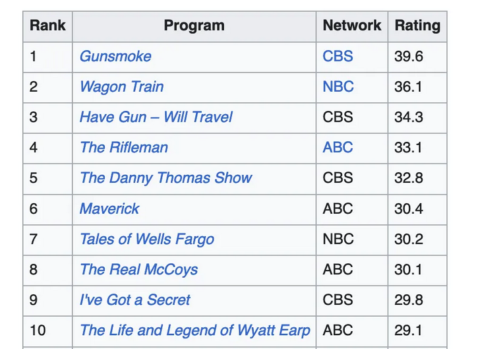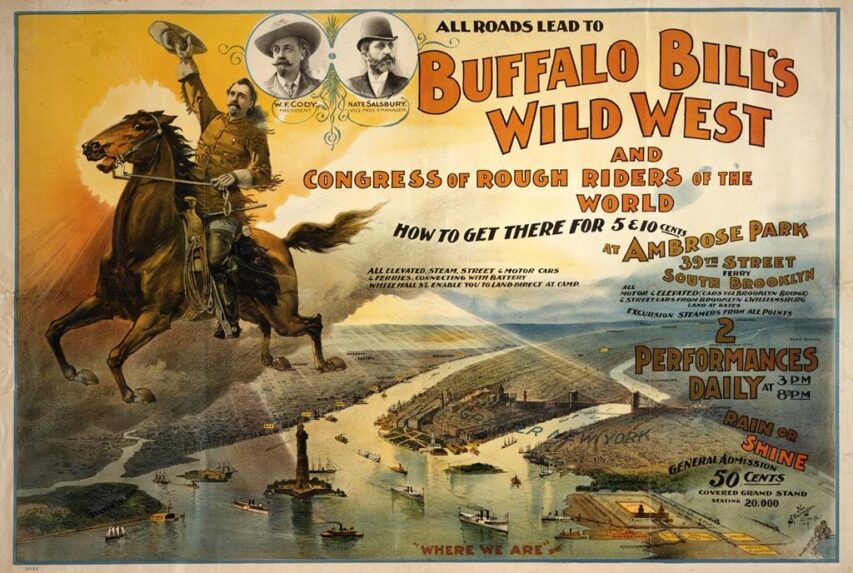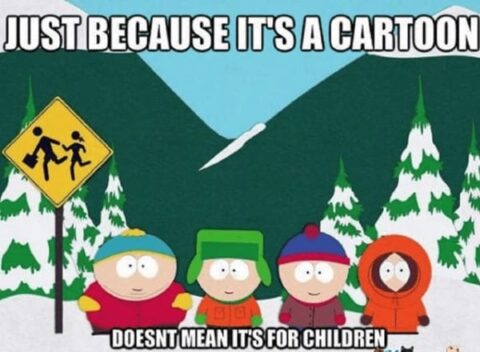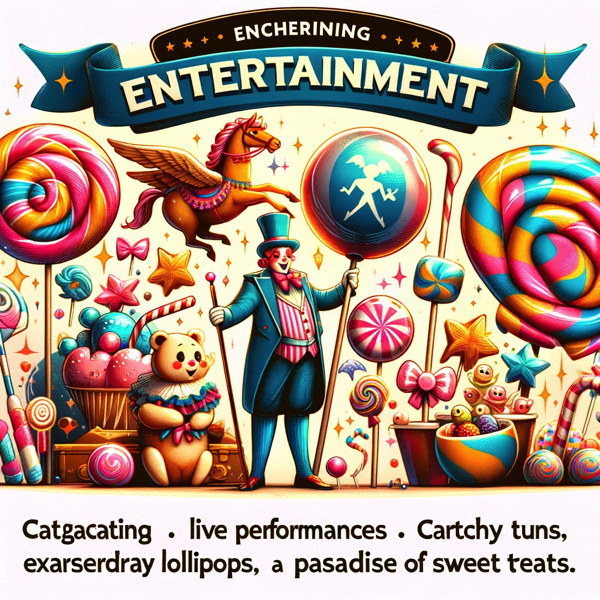As I’ve noted in each of these posts, the fundamental claim we are evaluating here is this one, made baldly by George R.R. Martin:
The Dothraki were actually fashioned as an amalgam of a number of steppe and plains cultures … Mongols and Huns, certainly, but also Alans, Sioux, Cheyenne, and various other Amerindian tribes … seasoned with a dash of pure fantasy.
We may, I think, now safely dismiss this statement as false. What we have found is that the Dothraki do not meaningfully mirror either Steppe or Plains cultures. They do not mirror them in dress, nor in systems of subsistence, nor in diet, nor in housing, nor in music, nor in art, nor in social structures, nor in leadership structures, nor in family structures, nor in demographics, nor in economics, nor in trade practices, nor in laws, nor in marriage customs, nor in attitudes towards violence, nor in weapons, nor in armor, nor in strategic way of war, nor in battle tactics.
We might say he has added “dashes” of pure fantasy until the “dash” is the entire soup, but the truth is clearly the reverse: Martin has sprinkled a little bit of water on a barrel of salt and called it just a dash of salt. There is no historical root source here, but instead pure fantasy which – because racist stereotypes sometimes connect, in thin and useless ways, to actual history – occasionally, in broken-clock fashion, manages to resemble the real thing.
It seems as though the best we might say of what Martin has right is that these are people who are nomads that ride horses and occasionally shoot bows. The rest – which as you can see from the list above there, is the overwhelming majority – has functionally no connection to the actual historical people. And stunningly, somehow, the show – despite its absolutely massive budget, despite the legions of scrutiny and oversight such a massive venture brings – somehow is even worse, while being just as explicit in tying its bald collection of 1930s racist stereotypes to real people who really exist today.
Instead, the primary inspiration for George R.R. Martin’s Dothraki seems to come from deeply flawed Hollywood depictions of nomadic peoples, rather than any real knowledge about the peoples themselves. The Dothraki are not an amalgam of the Sioux or the Mongols, but rather an amalgam of Stagecoach (1939) and The Conqueror (1956). When it comes to the major attributes of the Dothraki – their singular focus on violent, especially sexual violence, their lack of art or expression, their position as a culture we primarily see “from the outside” as almost uniformly brutal (and in need of literally the whitest of all women to tame and reform it) – what we see is not reflected in the historical people at all but is absolutely of a piece with this Hollywood legacy.
But Martin has done more damage than simply watching The Mongols (1961) would today. He has taken those old, inaccurate, racially tinged stereotypes and repackaged them, with an extra dash of contemporary cynicism to lend them the feeling of “reality” and then used his reputation as a writer of more historically grounded fantasy (a reputation, I think we may say at this point, which ought to be discarded; Martin is an engaging writer but a poor historian) to give those old stereotypes the air of “real history” and how things “really were”. And so, just as Westeros became the vision of the Middle Ages that inhabits the mind of so many people (including quite a few of my students), the Dothraki become the mental model for the Generic Nomad: brutal, sexually violent, uncreative, unartistic, uncivilized.
And as I noted at the beginning of this series, Martin’s fans have understood that framing perfectly well. The argument given by both the creators themselves, often parroted by fans and even repeated by journalists is that A Song of Ice and Fire‘s historical basis is both a strike in favor of the book because they present a “more real” vision of the past but also a flawless defense against any qualms anyone might have over the way that the fiction presents violence (especially its voyeuristic take on sexual violence) or its cultures. No doubt part of you are tired of seeing that same “amalgam” quote over and over again at the beginning of every single one of these essays, but I did that for a reason, because it was essential to note that this assertion is not merely part of the subtext of how Martin presents his work (although it is that too), but part of the actual text of his promotion of his work.
And it is a lie. And I want to be clear here, it is not a misunderstanding. It is not a regrettable implication. It is not an unfortunate blind-spot of ignorance. It is a lie, made repeatedly, now by many people in both the promotion of the books and the show who ought to have known better. And it is a lie that has been believed by millions of fans.
One thing that I hope is clear from this treatment is just how trivial the amount of research I’ve done here was. Certainly, it helped that I was familiar with Steppe nomads already and that I knew who to ask to be pointed in the direction of information. Nevertheless, everything I’ve cited here is available in English and it is all relatively affordable (I actually own all of the books cited here; thanks to my Patrons for making that possible, especially since getting materials from the library is slower in the days of COVID-19; nevertheless, the point here is that they are not obscure tomes). Much of it – Ratchnevsky on Chinggis Khan, Secoy and McGinnis on Great Plains warfare – were already available well before the 1996 publication of A Game of Thrones. 1996 was not some wasteland of ignorance that might have made it impossible for Martin to get good information! For an easy sense of what a dedicated amateur with film connections might have learned in 1996, you could simply watch Ken Burns’ The West, which came out the same year. I am not asking Martin to become a historian (though I am asking him to stop representing himself as something like one), I am asking him to read a historian.
Instead of doing that basic amount of research, or simply saying that the peoples of Essos were made up cultures unconnected with the real thing, Martin and the vast promotional apparatus at HBO opted to lie about some real cultures and then to put hundreds of millions of dollars into promoting that lie.
And I want to be clear, these are real people! I know, depending on where you live, “Mongols” and “Sioux” and “Cheyenne” may feel as distant and fanciful as “Rohirrim” or “Hobbits” or else they may feel like “long-lost” peoples. But these were real people, whose real descendants are alive today. And almost all of them face discrimination and abuse, sometimes informally, sometimes through state action, often as a result of these very lingering racist stereotypes.
In that context, declaring that the Dothraki really do reflect the real world (I cannot stress that enough) cultures of the Plains Native Americans or Eurasian Steppe Nomads is not merely a lie, but it is an irresponsible lie that can do real harm to real people in the real world. And that irresponsible lie has been accepted by Martin’s fans; he has done a grave disservice to his own fans by lying to them in this way. And of course the worst of it is that the lie – backed by the vast apparatus that is HBO prestige television – will have more reach and more enduring influence than this or any number of historical “debunking” essays. It will befuddle the valiant efforts of teachers in their classrooms (and yes, I frequently encounter students hindered by bad pop-pseudo-history they believe to be true; it is often devilishly hard to get students to leave those preconceptions behind), it will plague efforts to educate the public about these cultures of their histories. And it will probably, in the long run, hurt the real descendants of nomads.
But this is exactly why I think it is important for historians to engage with the culture and to engage with depictions like this. Because these lies have consequences and someone ought to at least try to tell the truth. With luck, even with my only rudimentary knowledge, I have done some of that here, by presenting a bit more of the richness and variety of historical (and in some cases, present-day) horse-borne nomadic life, in both North America and Eurasia.
Because there is and was a lot more to nomads than just “that Dothraki horde”.
Bret Devereaux, “Collections: That Dothraki Horde, Part IV: Screamers and Howlers”, A Collection of Unmitigated Pedantry, 2021-01-08.
August 5, 2024
QotD: George R.R. Martin’s Dothraki rank with the lazy racial sterotypes of Hollywood’s “Golden Age” westerns
July 20, 2024
QotD: Comparing gun crime in Canada and the United States
That may explain the extraordinary amount of sucking up to Canada in this movie [Bowling for Columbine], which, while gratifying to insecure Canucks and self-loathing Americans, may be of less interest to third parties. Moore’s thesis, such as it is, is that America’s murder rate is the consequence not just of the country’s love of guns but of deeper currents of paranoia and fear in the American psyche. To that end, he crosses the Michigan border into Ontario, where one Canadian after another tells him that they don’t lock their doors. The level of guns per capita in Canada is similar to America but the murder rate is much, much lower. Ergo, it must be because Americans are living in fear while Canadians are much more socially progressive.
Whatever, dude. Unlike Moore, I have homes on both sides of the border and it’s the Quebec one I keep locked. By the time you read this, I’ll be in New York, but my home in New Hampshire will be unlocked, and so will my car at the airport, the key in the ignition, so I’ll know where to find it. By contrast, in Quebec it’s illegal to leave your car unlocked, even if you stop for a pee on an ice floe up by Hudson’s Bay. Pace Moore, Canada has vastly lower rates of handgun ownership. Long-gun ownership is much closer, but, statistically, Canadians are slightly more murderous than Americans in this sphere: in the US, there are 1.7 homicides per 100,000 long guns; in Canada, it’s 1.9. So European visitors to North America should be aware they’re more likely to be killed by a homicidal Canadian rifleman than an American one.
On the overall murder rate, if Moore’s interested in “cultural differences”, it seems odd that he should avoid the most obvious one. Alberta Report‘s Colby Cosh, a braver man than I, points out that black Americans are 13 per cent of the US population but commit over half the murders. Once you factor those out, non-black Americans murder at about the same rate as Canadians.
Mark Steyn, “Bowling for Columbine”, Steyn Online, 2002-11-30.
July 14, 2024
QotD: Method acting
Fortunately, pop Wonka is played by Christopher Lee — or, as one of my kids exclaimed, “It’s Count Dooku!”, that being the name of his splendid turn in Star Wars. Lee is having a grand old time at the moment, doing ten minutes in every blockbuster around. My favourite moment in the Lord of the Rings movies isn’t actually in any of the movies, but in one of those “the making of” documentaries that appears on the DVD. It’s the scene where Saruman gets stabbed by Grima Wormtongue, and Lee explains to director Peter Jackson that the backstabbing sound isn’t quite right, because in his days with British Intelligence during the war he used to sneak up and stab a lot of Germans in the back and it was more of a small gasp they made. Jackson backs away cautiously.
Mark Steyn, “Charlie and the Chocolate Factory”, The Spectator, 2005-07-30.
July 13, 2024
The real story of Henry Hook, VC – Zulu
The History Chap
Published Nov 23, 2023Henry Hook, VC, 1850-1905. Zulu — the Battle of Rorke’s Drift.
Henry Hook was one of 11 defenders at the mission station at Rorke’s Drift (battle of Rorke’s Drift, Anglo-Zulu War 1879) who were awarded the Victoria Cross. Controversially, his character was misrepresented in the 1963 film Zulu. His character, played by James Booth (1927-2005), was depicted as an insubordinate barrack-room lawyer, a drunk and a malingerer. This was far from the truth.
Hook was actually a model soldier, who was teetotal, and who would serve as a regular and volunteer for over 40 years. His family were upset by the film, although contrary to popular stories, there is no evidence that Henry Hook’s daughters walked out of the [movie’s] premiere.
Nevertheless, in this video I aim to share his real story. Not just of his service in the army (and at Rorke’s Drift) but of a humble man from Gloucestershire, who returned home to find his wife had run off with another man, who found love for a second time and who worked in the British Museum.
Where is Henry Hook buried? Henry Hook’s grave can be found at St. Andrew’s church in the hamlet of Churcham, Gloucestershire. it is about five miles west of Gloucester.
0:00 Introduction
1:26 Early Life
3:10 Rorke’s Drift
3:56 Zulu
5:00 Defending The Hospital
7:45 Assegai wound
9:47 Making Tea
10:23 Victoria Cross
11:07 After Rorke’s Drift
13:11 Failing Health
15:10 The History Chap
(more…)
July 2, 2024
They Don’t Make Them Like  This
This Any More …
Any More …
Jill Bearup
Published Mar 18, 2024Ah, The Mark of Zorro. You will be endlessly told as a stage combatant that this is one to watch. There’s a reason for that, friends.
This video is sponsored by ME: https://books2read.com/juststabmenow
 This
This Any More …
Any More … June 5, 2024
Hollywood has been here before … and they learned nothing
Ted Gioia illustrates the mind-blowing dominance of westerns on TV and in the theatre in the 1950s and how quickly the boom was over and has never come close to recovering:

Source – https://en.wikipedia.org/wiki/Top-rated_United_States_television_programs_of_1958%E2%80%9359
Eight of the top ten shows during the 1958-59 season were westerns.
Spaceships were in the news every day back then, but on TV it was just horses — and occasionally a covered wagon. Each of the three networks was caught up in a time warp, partying like it was 1899.
Any fool could see that they were saturating the market. Yet the studios kept launching new westerns with regularity, although with less confidence, for another decade, more or less.
Back in 1955, the three US TV networks had introduced three new western-themed series — Gunsmoke, Cheyenne, and Wyatt Earp. But two years later, the networks ramped up their investment in cowboys, launching nine new westerns that fall.
And it got worse.
In 1958, these three networks introduced ten more western series. On some nights, you could watch cowboys for two hours straight on ABC. CBS and NBC also started scheduling back-to-back Wild West shows.
I need to stress that the western was already an exhausted genre long before 1960. Movie theaters had relied on cowboys as an audience draw going back at least to Broncho Billy Anderson and The Great Train Robbery (1903).
And cheap books and magazines with stories of the Wild West had already been around for decades at that point. By my measure, nostalgia for the old West dates back to the launch of Buffalo Bill’s Wild West show on May 19, 1883 in Omaha, Nebraska — four years after the invention of the gasoline engine.
[…]
Younger viewers were the first to abandon the western — a telling sign, especially when you consider that, back in the 1930s, children and teens had been the core audience for the genre.
By the time Gunsmoke went off the air in 1975, the few remaining fans were old-timers — maybe the same ones who had gone to movie theaters to cheer for Roy Rogers in the 1930s. That show had been the most popular TV series in the US for four seasons in the late 1950s. But a cowboy series would never do that again.
Youngsters lost interest in westerns despite a proliferation of merchandise. During my childhood, I paid no attention to the cowboy genre — nor did any of my friends. But brand merchandise was everywhere. We could buy Gunsmoke comic books, trading cards, lunchboxes, and — of course! — toy guns, among other paraphernalia.
With the benefit of hindsight, we can see that these products did not develop the market — they merely saturated it.
June 4, 2024
J.K. Rowling’s most convincing and true-to-life villain in the Harry Potter stories
I’m with Jon Miltimore on this — J.K. Rowling’s most disturbing and best-written villain isn’t “He Who Must Not Be Named” or any of the other (frankly cardboard-y) magical villains … it’s Dolores Umbridge, a career bureaucrat who could have been drawn from any western civil service senior management position:
Umbridge, portrayed in the films by English actress Imelda Staunton, isn’t some apparition of the underworld or a creature of the Dark Forest. She’s the Senior Undersecretary to the Minister of Magic, the man who runs the government (the Ministry of Magic) in Rowling’s fictional world.
Umbridge wears pink, preaches about “decorum” in a saccharine voice, smiles constantly, and resembles a sweet but stern grandmother. Her intense, unblinking eyes, however, suggest something malevolent lurks beneath. And boy, does it.
“The gently smiling Dolores Umbridge, with her girlish voice, toadlike face, and clutching, stubby fingers, is the greatest make-believe villain to come along since Hannibal Lecter,” horror author Stephen King wrote in a review of Harry Potter and the Order of the Phoenix, the book in which Umbridge is introduced.
Umbridge’s “Desire to Control, to Punish”
What makes Umbridge so evil that King would compare her to Hannibal Lecter, the man widely considered the greatest villain of all time?
I asked myself this question, and I believe the answer lies in the fact that Dolores Umbridge is so real — and in more ways than one.
First, it’s noteworthy that Rowling based Umbridge on an actual person from her past, a teacher she once had “whom I disliked intensely on sight”.
In a blog post written years ago, Rowling explained that her dislike of the woman was almost irrational (and apparently mutual). Though the woman had a “pronounced taste for twee accessories” — including “a tiny little plastic bow slide” and a fondness for “pale lemon” colors which Rowling said was more “appropriate to a girl of three” — Rowling said “a lack of real warmth or charity” lurked below her sugary exterior.
The description reminded me of another detestable literary villain: Nurse Ratched, the despicable antagonist of Randle Murphy in Ken Kesey’s magnificent 1962 novel One Flew Over the Cuckoo’s Nest.
Kesey’s description of Nurse Ratched conjures to mind a character much like Umbridge.
“Her face is smooth, calculated, and precision-made, like an expensive baby doll, skin like flesh-colored enamel, blend of white and cream and baby-blue eyes, small nose, pink little nostrils — everything working together except the color on her lips and fingernails …”
While there are similarities in the appearances of Dolores Umbridge and Nurse Ratched, their true commonality is what’s underneath their saccharine exteriors.
June 2, 2024
A definite sign of the end-times – “South Park is going into its 27th season”
I’d pretty much given up on watching anything on television around the time that South Park went on the air, so I never “stopped watching it” because I wasn’t watching anything on TV by that time (although I did see Team America: World Police in the theatre). Andrew Sullivan says I’ve been missing something quite worthwhile for all this time:
South Park is going into its 27th season. And it has rarely been better. (I simply can’t believe so many people I meet say they haven’t watched in years. You’ve been missing out!) The new special on obesity — a deft masterclass of social commentary — has a brutal takedown of suburban white women jonesing for doses of Ozempic like meth-heads; a definitive — and musical! — digression into the insanity of the American healthcare system; pure, character-driven humor in a figure like Randy Marsh — a far subtler parody of the average American male than Homer Simpson; and, of course, Eric Cartman — the “big-boned” fat-ass kid whose capacity for pure evil was first truly captured in the epic “Scott Tenorman Must Die“.
You can read books on Ozempic, scan op-eds, absorb TikToks, and even listen to the Dishcast! — but nothing out there captures every single possible social and medical and psychological wrinkle of this new drug than this hour of crude cartoons. Yes, there are fart jokes. There are always fart jokes. But fart jokes amid a sophisticated and deeply informed parody of insurance companies? Or, in other episodes, toilet humor guiding us through the cowardice of Disney, the dopey vanity of Kanye, the wokification of Hollywood, the exploitation of black college athletes, the evil of cable companies, the hollowness of hate-crime laws, the creepiness of Christian rock, or the money-making behind legal weed? Only South Park pulls this off. Only South Park gets away with all of it.
It’s a 1990s high-low formula at root, sophisticated cultural and political knowingness married to crude cartoons, silly accents, m’kay, and a talking Christmas turd, Mr Hankey. Generationally, it really marked a moment when merging these two worlds seemed the most creative option — not an abandonment of seriousness, but the attachment of a humane levity to it. South Park can be brutal, but it is never cruel. Unless you’re Barbra Streisand or Bono. And virtually every character (even Eric) is redeemable. Except Meghan Markle.
Yes, Matt and Trey have tried other things. To wit: just one of the best and most successful musicals of the 21st century, The Book of Mormon. They’ve pioneered deep-fakes. They also just renovated and relaunched a huge Denver restaurant they loved as kids, Casa Bonita, memorialized in a classic Cartman-is-evil episode. Twenty years ago, they actually created an entirely puppet-acted movie with epic sex and vomit scenes as a commentary on the war on terror, Team America; and are now teaming up with Kendrick Lamar to shoot a live-action comedy about a biracial couple where the black boyfriend interns as a slave re-enactor only to discover that his ancestors were owned by his girlfriend’s. No landmines there.
But they always return to South Park and evince no desire to transcend it — partly because it has become an entire world that can expand and contract at will: a world where Mel Gibson tweaks his nipples and smears his feces, Mickey Mouse acts like a mafia don, Michael Jackson’s nose falls off, Meghan Markle is a literal empty vessel, Christopher Reeve eats fetuses for their stem-cells, and Tom Cruise works in a fudge factory where, yes, he does a lot of the packing.
And in two decades of an acutely polarized and politicized culture, what team is South Park on? Precisely. You can’t tell, can you? — which is a staggering achievement in its own right. And it’s not about risk-aversion: the duo was targeted by Islamist terror and didn’t blink. They also took on the censors at the MPAA — savor this memo — and obliterated one of George Carlin’s “Seven Words You Can Never Say on TV” by saying “shit” 162 times in one episode.
They’ve shown Martha Stewart putting a whole turkey up her back-hole, Paris Hilton putting a whole pineapple up her front-hole, Caitlyn Jenner running over innocent pedestrians, and Jesse Jackson demanding that his big black ass be ceremoniously kissed. They’ve tackled Scientology and Mormonism; they’ve shown intergalactic Catholic priests astonished at the idea they have to stop raping young boys; and they beat Dave Chappelle by two decades with “Mr. Garrison’s Fancy New Vagina” — their take on sex reassignment.
They have done all this, taken no prisoners, and remain uncancellable. Why? Because their mockery is genuinely universal (including themselves), their courage is real, and because they remain humane.
By humane, I mean they show how you can skewer and yet still love. As a young gay man, I often winced at the careful, all-too-sensitive depictions of gay men in most movies and television, the elaborate ways in which the subculture was homogenized and prettified for straight audiences. But in South Park, I could see the gay reality as I had already witnessed it in all its bewildering variety: the right-wing, elementary school teacher Mr Garrison … dating Mr Slave — a leather-daddy with a gerbil called Lemmiwinks living in his upper colon; I could see Big Gay Al get expelled from the Boy Scouts — and defend their right to do so; I could see Butters’ dad on the DL at the White Swallow bathhouse; in time, I could see Satan having a gay love affair with Saddam Hussein, because his other boyfriend was so lame. They even made AIDS funny. The offense worked because it always conveyed an actual truth about gay men, while also obviously mocking us with love. (Mr Slave was portrayed as a moral paragon next to Paris Hilton, for example, and Mr Garrison eventually ends up with Rick, a total normie.) South Park‘s role in helping America grow up on the topic of homosexuality, especially the young male demographic who followed them, is deeply under-rated.
QotD: The Spartans do not deserve the admiration of the modern US military
The Athenian historian Thucydides once remarked that Sparta was so lacking in impressive temples or monuments that future generations who found the place deserted would struggle to believe it had ever been a great power. But even without physical monuments, the memory of Sparta is very much alive in the modern United States. In popular culture, Spartans star in film and feature as the protagonists of several of the largest video game franchises. The Spartan brand is used to promote obstacle races, fitness equipment, and firearms. Sparta has also become a political rallying cry, including by members of the extreme right who stormed the U.S. Capitol on Jan. 6, 2021. Sparta is gone, but the glorification of Sparta — Spartaganda, as it were — is alive and well.
Even more concerning is the U.S. military’s love of all things Spartan. The U.S. Army, of course, has a Spartan Brigade (Motto: “Sparta Lives”) as well as a Task Force Spartan and Spartan Warrior exercises, while the Marine Corps conducts Spartan Trident littoral exercises — an odd choice given that the Spartans were famously very poor at littoral operations. Beyond this sort of official nomenclature, unofficial media regularly invites comparisons between U.S. service personnel and the Spartans as well.
Much of this tendency to imagine U.S. soldiers as Spartan warriors comes from Steven Pressfield’s historical fiction novel Gates of Fire, still regularly assigned in military reading lists. The book presents the Spartans as superior warriors from an ultra-militarized society bravely defending freedom (against an ethnically foreign “other”, a feature drawn out more explicitly in the comic and later film 300). Sparta in this vision is a radically egalitarian society predicated on the cultivation of manly martial virtues. Yet this image of Sparta is almost entirely wrong. Spartan society was singularly unworthy of emulation or praise, especially in a democratic society.
To start with, the Spartan reputation for military excellence turns out to be, on closer inspection, mostly a mirage. Despite Sparta’s reputation for superior fighting, Spartan armies were as likely to lose battles as to win them, especially against peer opponents such as other Greek city-states. Sparta defeated Athens in the Peloponnesian War — but only by accepting Persian money to do it, reopening the door to Persian influence in the Aegean, which Greek victories at Plataea and Salamis nearly a century early had closed. Famous Spartan victories at Plataea and Mantinea were matched by consequential defeats at Pylos, Arginusae, and ultimately Leuctra. That last defeat at Leuctra, delivered by Thebes a mere 33 years after Sparta’s triumph over Athens, broke the back of Spartan power permanently, reducing Sparta to the status of a second-class power from which it never recovered.
Bret Devereaux, “Spartans Were Losers”, Foreign Policy, 2023-07/22.
May 15, 2024
Disintermediation Now! “Even the gatekeepers are sick of dealing with gatekeepers”
Ted Gioia on the trend for even people at the top of the distribution chain trying to find ways to get around the distribution chain they inhabit:

The Emoji Movie premiere at the Fox Theatre, Westwood Village, 23 July 2017.
Photo by Kristofer Gonzalez-DeWhitt via Wikimedia Commons.
A few weeks ago, 35 of the biggest names in Hollywood collaborated on a business venture. Can you guess what it is?
I’ll help by providing a list of the participants. Here they are in alphabetical order, to avoid wounding any of the huge egos involved:
J.J. Abrams, Judd Apatow, Damien Chazelle, Chris Columbus, Ryan Coogler, Bradley Cooper, Alfonso Cuarón, Jonathan Dayton, Guillermo del Toro, Valerie Faris, Hannah Fidell, Alejandro González Iñárritu, James Gunn, Sian Heder, Rian Johnson, Gil Kenan, Karyn Kusama, Justin Lin, Phil Lord, David Lowery, Christopher McQuarrie, Chris Miller, Christopher Nolan, Alexander Payne, Todd Phillips, Gina Prince-Bythewood, Jason Reitman, Jay Roach, Seth Rogen, Emma Seligman, Brad Silberling, Steven Spielberg, Emma Thomas, Denis Villeneuve, Lulu Wang and Chloé Zhao.
What are these movie titans up to?
Maybe they want to make a film together? Or perhaps they’re thinking bigger — planning to launch their own production company or even a movie studio?
Nope. They weren’t thinking big. They were thinking small — very small.
These heavy hitters got together to buy a 93-year-old building.
They now own the Westwood Village theater at 945 Boxton near the UCLA campus. I went there to see films when I was in high school and it was old even back then. At some point it stopped being old, and became historic and vintage. (Maybe if I live long enough this will happen to me too.)
But these 35 investors aren’t just interested in preserving a quaint old building. They want to own a place where they can show quality movies to a flesh-and-blood audience without anybody getting in their way.
We’ve reached a point where even the people in power at the top of the industry want to bypass the system. Even the gatekeepers are sick of dealing with gatekeepers.
That’s how bad it’s gotten.
May 11, 2024
The second time as farce – “we’re living through a performative version of the seventies”
Sarah Hoyt posted this a few days back, but I only noticed it now:

A member of the CIA helps evacuees up a ladder onto an Air America helicopter on the roof of 22 Gia Long Street April 29, 1975, shortly before Saigon fell to advancing North Vietnamese troops.
Hubert van Es photo via Wikimedia Commons.
Yesterday talking to a friend, he said that it seems like we’re living through a shoddy version of the seventies.
But that’s not QUITE it. It’s more complicated. It’s more like we’re living through a performative version of the seventies.
It’s like all the recasting and re-doing of classic movies and series, at this point even those that weren’t particularly successful: it feels like Hollywood is just redoing these things out of some sort of dinosaur brain memory that they were successful. However, the people in charge no longer have any idea why these things were successful or why they resonated or achieved the results they did.
So the re-casts/re-dos sound hollow and strange, and would even if they didn’t use them to push their weird personal current obsessions. (All heroes must be women and black and increasingly of some odd sexual identity! Only villains can be white!) Because the car is there, but the engine is gone metaphorically speaking.
A Boeing CH-47 Chinook transport helicopter appears over the U.S. embassy compound in Kabul, 15 Aug 2021. Image from Twitter via libertyunyielding.com
All these redos and recastings and all are just shells of what the original was. And imbuing them with current wokeness doesn’t make them massively popular, because it doesn’t have that kind of purchase amid the public.
The left and current “Cultural gatekeeping elite” doesn’t seem to be aware of this, or aware of why they fail. In fact, each failure baffles them.
I could be snide, here, and say that it’s because this entire administration, and in fact, the entire upper-crust/controlling layer of our institutions are profoundly untalented theater kiddies, who have no creativity but love the style, and so are trying to do performance of what they think should be there, in the hopes it will work. And are forever baffled it doesn’t.
The truth is not quite that mean, but it rhymes. They are people of a certain frame of mind. In most places and most times, this would make them profoundly “conservative.” Frankly they are, because 100 years into the “progressive” project, those who support it are conservatives. But it’s a weird sort of “conservatism” because what they’re conserving is the cult that tells them if they tear Western civ apart paradise ensues. The whole just-so cult of Marx as filtered through their parents, grandparents and great grandparents.
Part of the whole Marxian philosophy is that it’s a self-contained system, congruent within itself, and with no basis in reality. This makes a certain type of mind susceptible to it. In other centuries they’d be religious fanatics, missionaries to the heathens and zeal-burned puritans.
That type of mind tends to think of things in terms of pre-ordained and fixed narrative, not wildly creative and innovative. That THEY think of themselves as creatives is the insanity of the current system and the Marxian corruption of institutions. They are not actually capable of creativity, only of passing on the received word.
And so we get to the other side of the rerun of the seventies: These kids, by and large, grew up with everything from schools, to TV to even their parents (for the children and grandchildren of boomers) being sold a version of the sixties and seventies in which protesting on the street, behaving badly and destroying property was being passionate and fighting for the voiceless and by itself meant IMPROVING SOCIETY and MAKING THE WORLD A BETTER PLACE.
So the most gullible of this generation are rebels without a clue. They must perform the hit the streets and protest, but they lack the immediacy of the draft to make it personal, and they lack anything like civil rights to make it righteous.
Instead they attach to any stupid cause they can find or which is handed to them by manipulative SOBs. So, you know, it might be saving the endangered Prebles Jumping Mouse, or perhaps saving old buildings, or even well … Lately Occupy Wall Street, BLM, antifidiots and of course pro-Hamass.
April 12, 2024
FURY – How a Museum with a Sherman Made a Movie
The Tank Museum
Published Jan 5, 2024If you enjoyed the 2014 movie FURY, watch this and get the inside scoop behind The Tank Museum’s role in David Ayer’s Hollywood production. Ten years on from its release, David Willey describes how one of The Tank Museum’s Shermans and Tiger 131 took starring roles alongside Brad Pitt, Shia LaBeouf, Logan Lerman, Michael Peña, and Jon Bernthal. From initial discussions to the red carpet, David reveals every inch of the process, the lessons learned and the impact it has had on The Tank Museum.
Let us know what you thought of FURY and our tank’s performance in it in the comments below… What else would you like to know?
00:00 | Intro
00:50 | Fury – The Beginning
02:48 | Tiger Inquiries
05:00 | Insurance & Contracts
08:06 | Hollywood in Dorset
09:51 | On Set & Filming
14:55 | Was it worth it?
16:34 | Fury’s Longevity
(more…)
April 11, 2024
Disney: go woke, go broke?
spiked
Published Apr 10, 2024
The Walt Disney Company has gone from being an international treasure to an international laughing stock. Its films are flopping at the box office and fans are fuming. All because it has gone ridiculously woke, to an almost comical degree. No Disney film, franchise or TV series is now complete without clunky “progressive” messages about diversity, feminism and gender. The company has even started picking fights with anti-woke politicians. Here, Lauren Smith documents Disney’s Great Awokening – and the fan revolt against it. Watch, share and let us know what you think in the comments.Support spiked:
https://www.spiked-online.com/support/
Sign up to spiked’s newsletters: https://www.spiked-online.com/newslet…
Check out spiked’s shop: https://www.spiked-online.com/shop/
March 6, 2024
You had me at “Cartchy tuns, exarserdray lollipops” and “a pasadise of sweet teats”
Charlie Stross checks in with a Willy Wonka-adjacent story from Glasgow that utterly failed to live up to the billing:
This is no longer in the current news cycle, but definitely needs to be filed under “stuff too insane for Charlie to make up”, or maybe “promising screwball comedy plot line to explore”, or even “perils of outsourcing creative media work to generative AI”.
So. Last weekend saw insane news-generating scenes in Glasgow around a public event aimed at children: Willy’s Chocolate Experience, a blatant attempt to cash in on Roald Dahl’s cautionary children’s tale, Willy Wonka and the Chocolate Factory. Which is currently most prominently associated in the zeitgeist with a 2004 movie directed by Tim Burton, who probably needs no introduction, even to a cinematic illiterate like me. Although I gather a prequel movie (called, predictably, Wonka), came out in 2023.
(Because sooner or later the folks behind “House of Illuminati Ltd” will wise up and delete the website, here’s a handy link to how it looked on February 24th via archive.org.)
INDULGE IN A CHOCOLATE FANTASY LIKE NEVER BEFORE – CAPTURE THE ENCHANTMENT ™!
Tickets to Willys Chocolate Experience™ are on sale now!
The event was advertised with amazing, almost hallucinogenic, graphics that were clearly AI generated, and equally clearly not proofread because Stable Diffusion utterly sucks at writing English captions, as opposed to word salad offering enticements such as Catgacating • live performances • Cartchy tuns, exarserdray lollipops, a pasadise of sweet teats.* And tickets were on sale for a mere £35 per child!
Anyway, it hit the news (and not in a good way) and the event was terminated on day one after the police were called. Here’s The Guardian‘s coverage:
The event publicity promised giant mushrooms, candy canes and chocolate fountains, along with special audio and visual effects, all narrated by dancing Oompa-Loompas — the tiny, orange men who power Wonka’s chocolate factory in the Roald Dahl book which inspired the prequel film.
But instead, when eager families turned up to the address in Whiteinch, an industrial area of Glasgow, they discovered a sparsely decorated warehouse with a scattering of plastic props, a small bouncy castle and some backdrops pinned against the walls.
Anyway, since the near-riot and hasty shutdown of the event, things have … recomplicated? I think that’s the diplomatic way to phrase it.
February 22, 2024
The feminization of movies – the Luke Skywalker Effect
Like Lorenzo Warby, I was a fan of the first three Star Wars movies, but rapidly lost interest as the series progressed (I think I watched about half of Attack of the Clones before giving it up as a hack job). Here he gives his opinion on one of the biggest reasons why the later movies sucked:
I am, in many ways, a Stars Wars kid. I can remember sitting in a cinema in 1977, listening to the music play as the opening words flowed across the screen and the sound of the Star Destroyer rumbled out of the speakers and thinking “Yes, a film by One of Us”. That is, a film made by a genuine fan of SF.
A film, moreover, that gave us epic characters. Luke Skywalker: young, eager, physically skilled, charmingly gormless. Han Solo: charismatic rogue (who definitely shot first, that’s what charismatic rogues who read the room do). Princess Leia: the epitome of the competent-beyond-her-age young woman making sure the boys don’t get above themselves. Darth Vader: the looming — and yes charismatic — menace. Chewbacca: scary loyal sidekick. Obi-wan Kenobi: wise, world-weary, teacher with intriguing powers. Grand Moff Tarkin: the ruthlessly competent minion that autocrats both want and fear.
A film that was fun, that was embedded in an intriguing universe. A film that understood the need for training, the hero’s journey, building teams. The briefing of the fighters before the attack on the Death Star is a classic example of informing the audience by letting them see the process of getting everyone on the same page.
I loved the first three films: yes The Empire Strikes Back (1980) is the best of them. I was not entirely sold on the Ewoks, but they were fun. Those films were a huge success for very good reasons.
I was less impressed with the prequels. I described The Phantom Menace (1999) as “Star Wars for six year olds”. Lucas should have stuck with the pattern that worked so well for The Empire Strikes Back — get a good director and have good scriptwriters tighten up his story.
When Lucasfilm was sold to Disney, I was actually pleased. Disney, I thought, knew how to tell stories. Rogue One (2016) seemed to be a vindication of that.
When The Force Awakens (2015) came out, I was so happy to have a big screen Star Wars epic film, I just went with it. There were huge problems with the character of Rey, but I wanted to be taken for a ride, and so was: in so many senses.
Looking back, the writing down of the character of Han Solo was a big red flag. In the original trilogy, he grew as a character, as a person. In the first of the sequel trilogy, we were presented with a broken down, ageing failure as husband and father who had decayed to less than what he was when we first met him.
Meanwhile, we had the Mary Sue of a Rey who was just better than the boys as everything, including running the Millennium Falcon. She didn’t need training or experience, she was just naturally awesome because … girl.
Hollywood pretending that women have the same upper body strength as men is pretty pathetic, but never as pathetic as in the light-sabre fight between Rey and the Emo-Teenager Discount Darth Vader aka Kylo Ren. Yes, Ren was wounded, but years of experience and training counted for naught against Rey because … girl.
The Last Jedi (2017) was so much worse. Again, I wanted to like it, but things just niggled at me all the way through, despite my wish to enjoy the ride.
Once I got out of the cinema and began to consider what I had watched I became very angry. The chubby Chinese girl and belittled Black guy side plot was tired agitprop. Snope had been built up as epic villain but was disposed off with ridiculous expedition without any backstory explanation. Admiral Gender Studies was a study in pathetically bad leadership who clearly had no idea of how to build a team yet presented as a righteous authority. Poe Dameron was diminished into Male Initiative Is Bad Because Toxic Masculinity morality-play persona.
Epic military scenes do not work as parables. Parables subordinate story and character to didactic purpose. Epic military scenes really do not work as parables when the didactic purpose itself is so pathetic.
This is all bad enough, but the unforgivable crime against the entire legacy of Star Wars was what was done with Luke Skywalker’s character.
The original Luke Skywalker was a study in epic heroism. Yes, he was genetically advantaged, but he also trained to hone those advantages. He was not only physically brave, he was morally brave. Alone, captive, in the hands of his enemies — having deliberately surrendered to save his friends — he refuses to strike his father down. Alone, he defies the Emperor to his face and suffers terribly for his decision. He earned his capacities and his heroic standing.
What are we presented with in The Last Jedi? A broken and pathetic shadow of his former self. The offhand disposal of Snope has the effect of belittling the characters of Han Solo and Luke Skywalker even further. Their son, nephew and disciple had defected to the Dark Side because of … an explanation that made no character sense at all.
Seriously, the man who had shown that level of moral courage decided to kill his disciple and nephew because he had disturbing visions? It was an insult to the character, to the legacy and to the audience.
The sequel trilogy, particularly The Last Jedi, was a profound insult to legacy. To the legacy of Star Wars and to legacy within Star Wars. Thus was another parable pushed: legacy is pathetic and needs to be abandoned and subverted. The contemporary progressive contempt for all past human striving — it’s so full of male faces don’t you know, and (in the West) white ones — in fictional form.
We were presented with a universe where men fail as mentors and examples and women don’t need such. The later added-in training of Rey in The Rise of Skywalker was a pathetic patch on a deeper story-telling failure.
Any white male was pathetic, a failure, evil, stupid, toxic or some combination of the same. Meanwhile, the protagonist was great because … girl.
This was a vision that is sexist-racist, in a quite deliberate fashion.
The completion of the trilogy in The Rise of Skywalker (2019) had interest only to see how they were going to resolve (or not) all the story-telling holes The Last Jedi had lumbered the trilogy with. Bringing back Ian McDiarmid’s Palpatine — easily the best thing in the prequel trilogy — was a sign of desperation, of creative exhaustion.
Each of the films in the sequel trilogy did worse than at the box office than the one before. A very clear statement of a legacy being run down.









